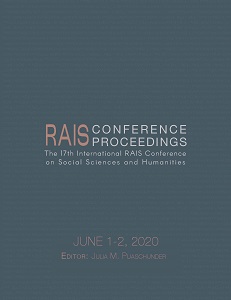Risks, Discrimination and Opportunities for Education during the Times of COVID-19 Pandemic
Risks, Discrimination and Opportunities for Education during the Times of COVID-19 Pandemic
Author(s): Titus Corlăţean
Subject(s): School education, EU-Legislation
Published by: Scientia Moralitas Research Institute
Keywords: education; schools; COVID-19; pandemic;
Summary/Abstract: The COVID-19 pandemic has been and still is a serious challenge to Mankind, even if it does not constitute an actual threat to the lives of nations. The pandemic has caused a situation of international sanitary crisis, numerous losses of lives, traumas, economic shocks and significant social costs. In short, COVID-19 will entail certain changes which are essential to Mankind in the short and medium term, at least. One of the social areas that faced the strongest challenges, without being really prepared for it, is that of Education. Teachers, pupils and students, parents, schools and local communities and, last but not least, the state were suddenly put in a position to change their rules of operation, teaching techniques or examination methods overnight. New technologies, difficult to assimilate in the short term by all players involved, material financial and educational resources which proved inaccessible to many students, especially in less developed regions or states worldwide, racial, gender, but also regional discrimination, young women and girls exposed to domestic or sexual violence, in short, this constituted a magnifying glass for inequalities. As in any major crisis situation, COVID-19 has generated not only significant risks, discrimination or costs, but also unanticipated opportunities, substantial human and technological progress platforms, including in the field of Education. UNDP recommends “five priority steps to tackle the complexity of the crisis: protecting and developing health systems and services; reinforcing the social protection; protecting jobs, small and medium-sized businesses and informal sector workers; making macroeconomic policies work for everyone; promoting peace, good governance and trust to build social cohesion”. It is very easy to notice the fact that none of these five priorities are possible to be fulfilled without the solid foundation of a good quality education (UN Sustainable Development Goals no 4). International experts raise an important question: will the current pandemic actually be the trigger for transformation? The answer and the appropriate solutions will imply political will and vision, a proper prioritization, budgetary resources, partnerships, good use of the innovative human intelligence, international solidarity and a non-discriminatory approach, ensuring that learning is accessible to all.
Book: Proceedings of the 17th International RAIS Conference on Social Sciences and Humanities
- Page Range: 37-46
- Page Count: 10
- Publication Year: 2020
- Language: English
- Content File-PDF

